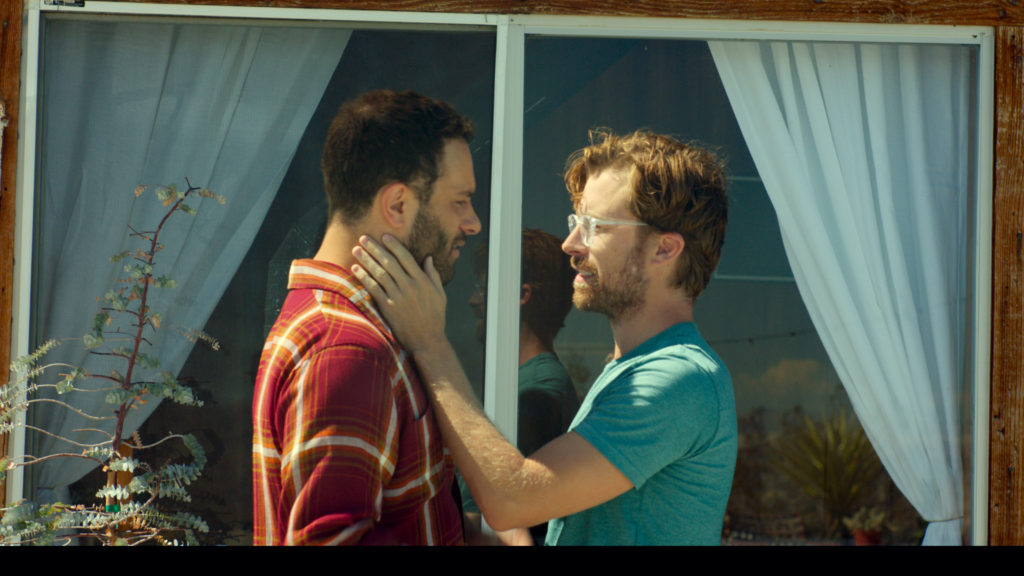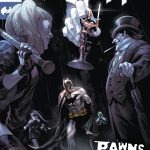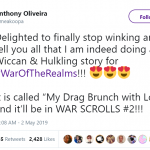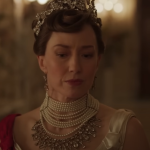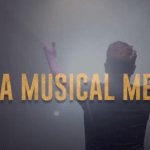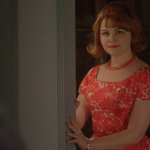Lazy Eye – Interview with Tim Kirkman, Lucas Near-Verbrugghe & Aaron Costa Ganis
I recently had the pleasure of interviewing the writer/director of Lazy Eye Tim Kirkman along with the male leads, Lucas Near-Verbrugghe and Aaron Costa Ganis. We talked about the inspiration for the film, the current state of LBGTQ+ cinema and more.
Note: I couldn’t keep Aaron for the whole interview due to technical difficulties.
What inspired you to write Lazy Eye? Was there a message you wanted viewers to get after watching it?
Tim: Some events in my own life inspired me to write Lazy Eye. Mostly turning 40 and my eyes changing. And around the same time, hearing from an ex from years and years ago, who kind of reached out to me. Actually, there were a couple of people but there was one in particular who reached out to me and it kind of threw my life in a whirlwind for a while. It was somebody who had ghosted and I didn’t know what happened to him.
As for what I want people to get from Lazy Eye? Well, that’s a very different question from what inspired it. I want them to think about the gray areas of the choices we make in our lives. I hope they come away with reflection on their own lives and what it means to be committed and reconcile with your own past and your present and your future. The film is just a moment in their lives, and however they respond is however they respond. What Lucas and I have been both experiencing is people, after screenings, is that they tell us ‘Well, this happened to me’ or ‘I really didn’t like your character until you did this’, it’s sort of a rollercoaster of responses.
What were your thoughts when you read the script?
Lucas: I really loved the script when I first read it. I remember finishing it and being very excited that someone had written such a story, a character study that tried to get into the nooks and crannies of a complicated relationship without trying to sugarcoat it. I really responded to how Tim’s story got into the parts that were difficult, where people wanted two opposing things and how to reconcile that for themselves.
The relationship in the film also resonated with me…I think the past is something that we all sit with. The longer you sit with it, the older you get, it changes and it’s not something that is stuck. I think our memories kind of grow the more time we spend with them. The idea of going back and unearthing this old thing that you’ve kind of been living with and turning over and trying to make sense of, in the process of doing that, it kind of gets bigger and more…and actually coming face-to-face with it is a really big moment. I responded to all that in the film. I loved the character too. It was something I hadn’t done before. And getting to paint a whole picture of someone and be that much a part of the story, be the story, was such an incredible challenge to me.
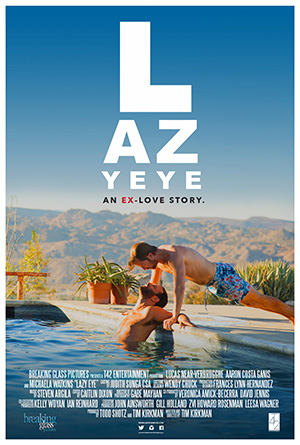 Aaron: For me, it isn’t like initially going in and seeing how I fit into the puzzle so much as it is about getting a sense of the whole thing. When I went in for the first read it was more about clocking the story as a whole and thinking about the kind of story we’re going to tell and if it made sense. What am I latching on to, to make sense to me, what resonates with me. For me, it was a love story…the pacificity of the story is what I thought was really gripping. When Tim and I met, the thing that I was really attracted to was the simplicity of telling a love story where everything around the characters was inconsequential. It was their personal history that I was latching on to.
Aaron: For me, it isn’t like initially going in and seeing how I fit into the puzzle so much as it is about getting a sense of the whole thing. When I went in for the first read it was more about clocking the story as a whole and thinking about the kind of story we’re going to tell and if it made sense. What am I latching on to, to make sense to me, what resonates with me. For me, it was a love story…the pacificity of the story is what I thought was really gripping. When Tim and I met, the thing that I was really attracted to was the simplicity of telling a love story where everything around the characters was inconsequential. It was their personal history that I was latching on to.
How was it like working in the desert?
Tim: We shot 9 days in the desert and 3 days were in LA. It loved it because I love the desert. I love Joshua Tree. I love the Mojave. It was in September so it was very hot during the day and every cold at night as the desert tends to be. It is really beautiful. I think it is a character in the story. There are so many wonderful landscapes and kind of quirky desert-specific businesses that we shot in.
Lucas: The scene in the pool. The pool was very cold because by the time we shot it, it was kind of in the evening and it had cooled off. I know there’s a lot of footage where my teeth were chattering.
The house that we shot at is a famous house and it was cool to be hanging out there because it is kind of a historical landmark. It belonged to Van Heusen who was a music producer and a songwriter. And there is a helicopter landing pad up on top of the hill. And the house we shot at was the pool house.
Aaron: I’ve never actually been to a desert before. Shooting in a desert is confusing. It is phenomenally hot in the day time and painfully cold at night. But I had a great time getting body heat from Lucas because he is smaller than I am and his body works harder to retain heat.
Lucas: I’m like a water bottle.
Aaron: A hot water bottle.
Opinions about the current state of LBGTQ+ films?
Tim: It is changing. I think you’re going to see a lot more film like Lazy Eye where being gay isn’t an obstacle. It isn’t a problem in the movie. I want to see more bad guys. I want to see really awful gay characters. Kind of like the TV show Difficult People with Billy Eichner. He’s great. They’re just so funny.
Lucas: His character is so reprehensible.
Tim: And so are the other gay characters that work with him in the coffee shop. They’re awful human beings. And I want to see more stuff like that. I would like to see gay film noir. I just want to see a film where people are behaving badly and doing despicable things to each other because it is entertaining to watch. Though I love the uplifting heroic movies too but I really love the nasty, vindictive, vengeful, you know.
Lucas, how would you describe Dean as a character?
Lucas: Dean is in a place where he’s at a crossroads, dealing with being forty. I think turning 40 is a huge moment of reflection and can be terrifying. It can make people think their relationships. How I’ve prioritized by life, who I surrounded myself with, the decisions that I’ve made in my past that have led me to where I am now. I think when we cycle through those moments, you have to make order of everything…I think that’s where he is, in a place where he has to decide how his life is going to look and where his priorities are.
What I do love about this film and how it work is that the decision isn’t just about saying ‘okay, this is what I want so I’m just going to do it’, because as human beings you can want two different things and I think this movie kind of zooms in on this moment where you have, where Dean is holding on two different versions of his life, and he can’t let go. And by the end of the movie he has to let go and go in one direction.
But being in a place of not knowing and having to make a decision is a very alive place to be. It can be on the brink of an identity crisis or a crisis of faith…where you go ‘who do I want to be?’, ‘what is the future going to hold for me?’…Is it going to be with ‘this’ person or is it going to be with ‘this’ person. So, that’s Dean for me in a scattered nutshell.
Any future projects you’re working on?
Tim: I’ve written a biopic about Lynden Johnson’s Chief of Staff. It is set in 1964, right before the election. It is a sort of a relationship movie but has a part of history nobody knows about….it is LGBT history as well.
Lucas: I’m working on a play called Icebergs at the Geffen Theatre in Los Angeles. I’ve a short online called Point and Shoot that has been making the rounds, starring Donald Sutherland and Caleb Scott. It has been a fun side project that has been really exciting to get to shape.
Any possibility for Lazy Eye 2…a sequel?
Tim: Yeah, sure.
Lucas: Amblyopia strikes again!
Lazier Eye!
Tim: The Laziest of All Eyes.
The Laziest Eye! That’ll be the finale for the trilogy.
Lucas: People really do want a sequel to this movie. It comes up a lot in our conversations.
__
Lazy Eye had its Los Angeles and New York theater release on 11th November 2016. It’ll be available on VOD and DVD on 15th November. Make sure to read my review.
Have you watched Lazy Eye yet? What did you think? Let us know.
Author: Farid-ul-Haq
Farid has a Double Masters in Psychology and Biotechnology as well as an M.Phil in Molecular Genetics. He is the author of numerous books including Missing in Somerville, and The Game Master of Somerville. He gives us insight into comics, books, TV shows, anime/manga, video games, and movies.
Help support independent journalism. Subscribe to our Patreon.
Copyright © The Geekiary
Do not copy our content in whole to other websites. If you are reading this anywhere besides TheGeekiary.com, it has been stolen.Read our

